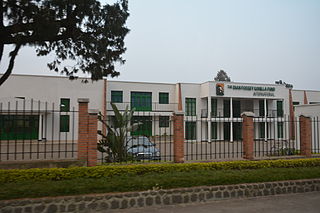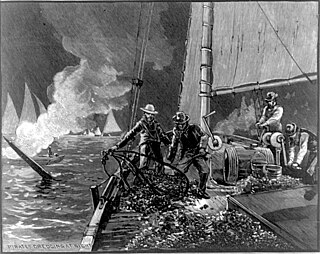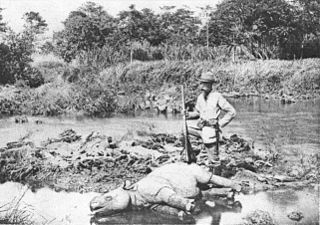 W
WPoaching has been defined as the illegal hunting or capturing of wild animals, usually associated with land use rights. Poaching was once performed by impoverished peasants for subsistence purposes and a supplement for meager diets. It was set against the hunting privileges of nobility and territorial rulers.
 W
WAnti-poaching is the organised act to counter the poaching of wildlife. However, it is generally used to describe an overall effort against the illegal wildlife trade. The act of anti-poaching is normally carried out by national parks on public land and by private security companies on privately owned land. Anti-poaching takes many forms and which depends mainly upon the habitat being protected. Typically, it is the act of actively patrolling land in an effort to prevent poachers from reaching the animals.
 W
WBering Sea Anti-Poaching Operations were conducted in 1891 by the navies and marine corps' of the United States and the United Kingdom of Great Britain and Ireland. Due to the near extinction of the seal population in the Bering Sea, the American and British governments dispatched a squadron of warships to suppress poaching activities, under the command of Charles S. Cotton.
 W
WCoral poaching is the confiscation of highly valued coral species from protected areas for sale as many types of jewellery that could be sold of upwards to $1,800 per gram. The illegal removal of coral is one of the most major environmental issues in many counties of Eastern Asia that destroys valuable ecosystems that harbors marine life. The resulting effect of harvesting coral colonies causes a significant financial loss to the surrounding economies and the destruction of environments.
 W
WThe Dian Fossey Gorilla Fund International is a charity for the protection of endangered mountain gorillas. The Digit Fund was created by Dr. Dian Fossey in 1978 for the sole purpose of financing her anti-poaching patrols and preventing further poaching of the mountain gorillas. Fossey studied at her Karisoke Research Center in the Virunga Volcanoes of Rwanda. The non-profit fund was named in memory of Fossey's favourite gorilla, Digit, who was decapitated by poachers for the offer of US$20 by a Hutu merchant who specialized in selling gorilla heads as trophies and gorilla hands as ashtrays to tourists.
 W
WEnvironmental issues in Kenya include deforestation, soil erosion, desertification, water shortage and degraded water quality, flooding, poaching, and domestic and industrial pollution.
 W
WFreshwater eel poaching and smuggling have emerged in recent years as a direct response to the sustained popularity of eels as food combined with the eels' low population, endangered status, and subsequent protections. Freshwater eel are elongated fish in the Anguillidae family of ray-finned fish. The three most commonly consumed eel species are the Japanese eel, European eel, and American eel.
 W
WThe International Anti-Poaching Foundation (IAPF) is a non-profit organisation registered in Australia, predominately operating on the African continent. The group initially created a structured military-like approach to conservation, employing tactics and technology generally reserved for the modern-day battlefield, and has since moved to a community oriented approach. This has included the training of local women as rangers.
 W
WThe ivory trade is the commercial, often illegal trade in the ivory tusks of the hippopotamus, walrus, narwhal, mammoth, and most commonly, African and Asian elephants.
 W
WOyster pirate is a name given to persons who engage in the poaching of oysters. It was a term that became popular on both the West Coast of the United States and the East Coast of the United States during the 19th century.
 W
WThe pangolin trade is the illegal poaching, trafficking, and sale of pangolins, parts of pangolins, or pangolin-derived products on the black market. Pangolins are believed to be the world's most trafficked mammal, accounting for as much as 20% of all illegal wildlife trade. According to the International Union for Conservation of Nature (IUCN), more than a million pangolins were poached in the decade prior to 2014.
 W
WPlant collecting is the acquisition of plant specimens for the purposes of research, cultivation, or as a hobby. Plant specimens may be kept alive, but are more commonly dried and pressed to preserve the quality of the specimen. Plant collecting is an ancient practice with records of a Chinese botanist collecting roses over 5000 years ago.
 W
WRhino poaching in Assam is one of the major environmental issues in India which continues in the region of Kaziranga National Park, Manas National Park and some other grasslands of Assam. Indian rhinoceros inhabited most of the floodplain of the Indogangetic and Brahmaputra riverine tracts and the neighboring foothills.
 W
WRhinoceros poaching in southern Africa is the illegal act of slaughtering rhinoceros in the southern African countries of Namibia, Botswana, Zimbabwe and South Africa, where most of Africa's rhinos occur. The most common reason for rhino poaching is to meet the high demand for their horns in Asian countries, where the horn is predominantly used in Traditional Chinese Medicine but is increasingly being used as a symbol of wealth and prosperity. In previous generations, the most common rhino poaching activity was hunting for recreational purposes. Because of excessive poaching, rhino populations have decline rapidly since the 1970s, leaving some species critically endangered and facing extinction.
 W
WSally's Irish Rogue is a 1958 British comedy film directed by George Pollock and starring Julie Harris, Harry Brogan and Tim Seely. It was based on the play The New Gossoon by George Shiels, and was released in the U.S. as The Poacher's Daughter. Filming took place at Ardmore Studios in Dublin.
 W
WSpecies affected by poaching refers both to the effects of illegal hunting and fishing or capturing of wild animals on certain species, and, in a recent usage, the illegal harvesting of wild plant species. The article provides an overview of species currently endangered or impaired by poaching in the Americas, sub-Saharan Africa, and South-East Asia.